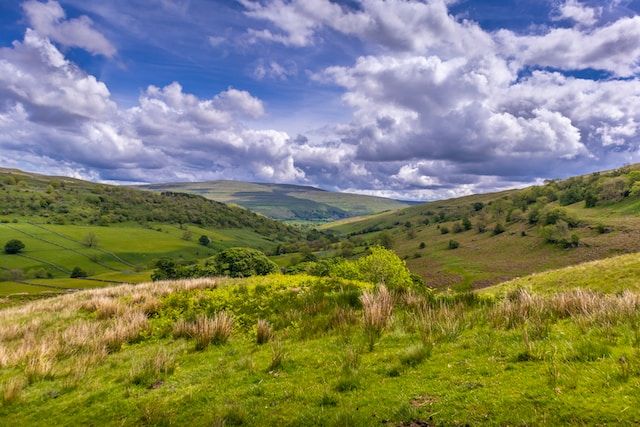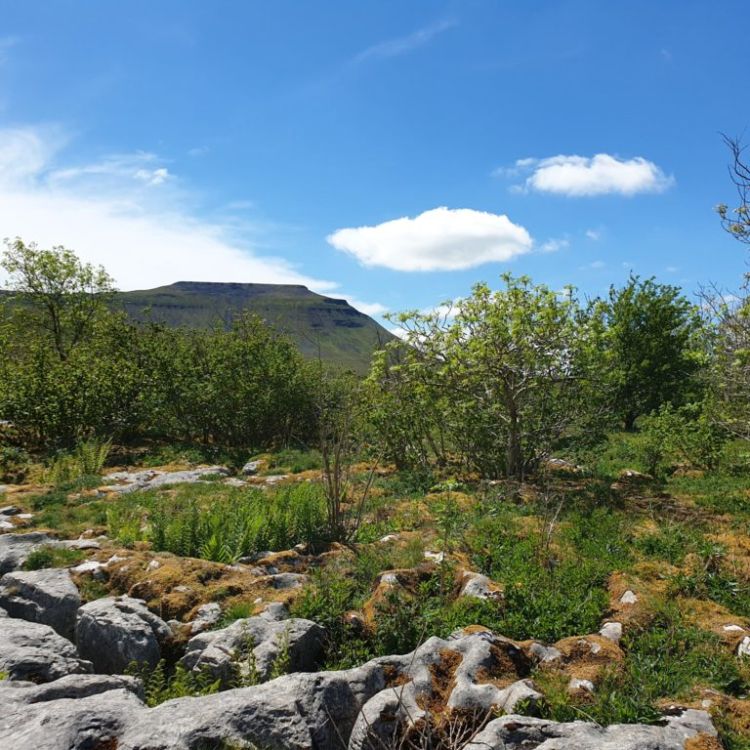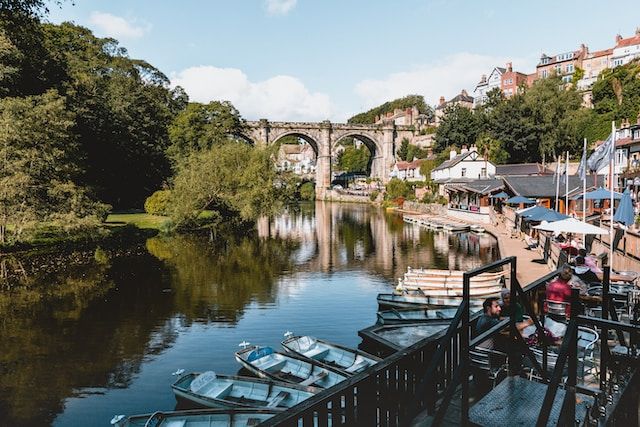Celebrating Yorkshire Day with conservation and sustainability research

This Yorkshire Day, the Faculty of Environment celebrates Yorkshire’s iconic landscapes and unique cities.
Academics, researchers and communities are working towards a greener, more sustainable Yorkshire that is equal for all. Below, we highlight some of this work.
Rewilding Yorkshire
Over 30% of Yorkshire’s land is within various National Parks. Although the landscapes are protected, not all of them are flourishing as they could be.
Colleagues in the Faculty of Environment and the University of Leeds are improving their outcomes in various projects.
A team with the Leeds Ecosystem, Atmosphere & Forest (LEAF) Centre has worked with communities in Ingleborough, the Yorkshire Dales, to rewild their area.
Now, lead investigator Professor Dominick Spracklen is scaling up his rewilding efforts alongside the Woodland Trust to improve the biodiversity of over 600 hectares in Snaizeholme.
The LEAF Centre also completed planting of Gair Wood, which has recently been shortlisted for the 2023 UK and Ireland Green Gown Awards.
As well as planting new life in these areas, the researchers will monitor the effects of their projects in the future. This knowledge will support future rewilding projects and ensure that the lessons learned can be used to improve new wild areas in Yorkshire and beyond.
Involving communities
In Gair Wood, over 6,000 trees were planted by volunteers from the community. The involvement of local communities is essential to many of our projects.
As well as the many volunteers who helped with these rewilding projects, researchers with water@leeds are training citizen scientists to test their local rivers, such as the River Nidd. They are given support and advice about where, when and how to test the water as well as what the results mean. The researchers hope to create a Yorkshire-wide database that will inform water quality policies throughout the region.
The iCASP project has also invited local people to collect data from peat bogs, one of Yorkshire’s most important environmental features. These bogs store huge amounts of carbon, but many of them were severely degraded in the past. The collection of new data about Yorkshire’s peatlands will help to protect the existing peat bogs and support the regeneration of the land.
When the people of Yorkshire are involved in projects alongside researchers, the shared knowledge and experience benefits everybody. The initiatives give communities the chance to perform science and be empowered; they have the knowledge, support and opportunity to take action that improves their environment.
Others, such as the Born in Bradford Breathes project, involve young people and children in their research. Pupils in Bradford have been involved in collecting data for the study, which evaluates the effectiveness of Clean Air Zones in the city.
The results of this study, as well as many others in the Faculty of Environment, will be made available to policymakers to ensure their decisions are evidence-based.
Supporting cities
When environmental policy is supported by research and the people it affects, it helps to make the future fairer for all in Yorkshire.
As well as supporting nature, our researchers are working to make our towns and cities sustainable, equitable and future-proof.
The iTree project, supported by the LEAF centre, gathered data about the trees on the campus of the University. Their effects on the environment were analysed, and it was found that the campus trees “were removing an amount of pollution equivalent to around 1 million cars driving past”.
The data, which was made available to all, shaped recommendations for travel to and around the campus to ensure that staff, students and visitors access the grounds in the healthiest way.
In the wider region, our academics are part of conversations in events like Yorkshire Sustainability Week. The multidisciplinary research and projects that were highlighted during this time included ways to make local businesses, economies and homes more sustainable.
While the University of Leeds has an international reach, our work will always include and empower the communities and environment of Yorkshire and seek to make our home the best it can be.







